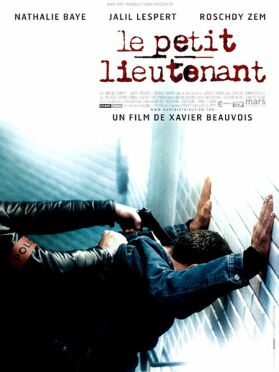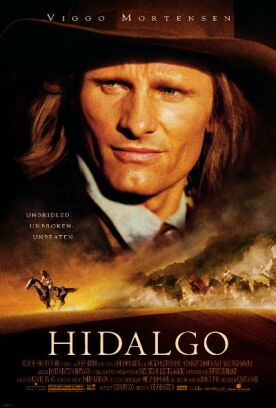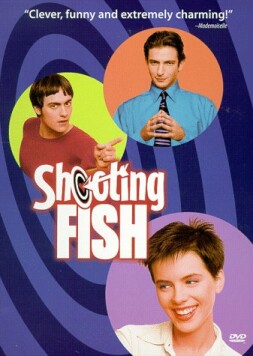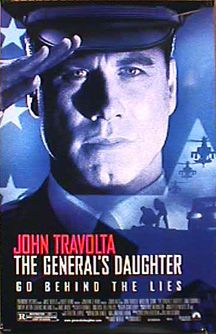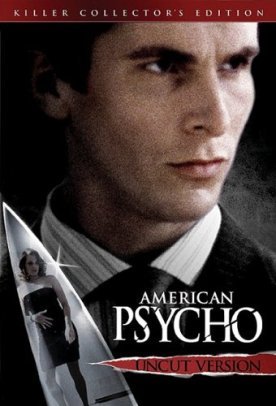Petit Lieutenant, Le
As a long-time admirer of the beautiful Nathalie Baye, I found the moment when Commandant Caroline “Caro” Vaudieu of the Paris police, her character in Xavier Beauvois’s new film, crumples on the receipt of bad news as if she has been shot terribly poignant. But it is also a reminder of what has been left out of Le Petit Lieutenant, this naughty French movie — namely sex. For sex implies vulnerability, and all of Caro’s energies are required to prevent hers from being exposed. When on her return to the Parisian Criminal Investigation Division from which she has been exiled to a more bureaucratic job, she breaks into that familiar radiant smile, it is only to remind us of what we will be missing for the rest of the film. A de-sexualized Nathalie Baye is like a non-violent Arnold Schwarzenegger. Why would a film featuring either one of them thus throw away its principal asset?
In fact, there is a reason. For this is a film about blighted lives — lives with very little in the way of joy or love or hope. Several of Miss Baye’s scenes take place at AA meetings, and she sits in them stony-faced, listening to others express emotion without, apparently, feeling any herself. We can understand intellectually what her booze-deprivation must feel like, but such obvious emotional deprivation in such a woman is like a slap in the face. “Abstinence has not diminished my madness; far from it,” says one of her fellow alcoholics. But in her it has diminished everything. That and loneliness. And enduring grief for the loss to meningitis, many years before, of a young son.
If he had lived, that son would have been about the same age as Antoine Derouère (Jalil Lespert), the eponymous young lieutenant just arrived from the provinces by way of the police academy whose naïve excitement at the prospect of being a detective in the big city comes into her stagnant life and that of her cynical, hard-bitten colleagues, like a breath of fresh air. He had been drawn to police work, at first, by the movies, Antoine tells Caro. He couldn’t bear the thought of being stuck behind a desk. She warns him that much of the time of an under-cover cop, even in Paris, is spent behind a desk, doing paperwork, but agrees with him that the odd case — like that of a serial killer maybe — that she calls a gros-gros makes it all worthwhile, even if you only get two or three in a career.
When a drunken Pole (Arthur Smykiewicz) is murdered by a couple of Russians and they run out of leads, Antoine unselfconsciously says, “Let’s hope they strike again.” Instead of reproving him, Caro says wonderingly, “This really excites you, doesn’t it?” — perhaps remembering her own excitement about the job as she now remembers the taste for gin and night-life that she has had to give up.
Antoine has left back in Normandy a young wife, Julie (Bérangère Allaux), who has no desire to follow him to Paris. The boredom of a policeman’s life in Le Havre has no appeal to him; the excitement of life in the city none for her. In the stalemate between them, though love survives, we see in embryo the emotional gridlock that seems to affect all the older characters. The only one of Antoine’s colleagues with any joie de vivre is a young Moroccan called Solo (Roschdy Zem), happily married to a French wife with whom he has two small children. But he is the victim of casual racism every day.
M. Beauvois spent research time with the Parisian police trying to acquire a feel for what, at crucial moments, he calls the “reality” of the contemporary policeman’s lot, and he tries to convey this by a certain flattening of the narrative arc. He doesn’t use the hand-held camera of traditional cinéma vérité, but he achieves a somewhat similar effect by making the rather exciting story of the hunt for the murderous Russians seem to emerge naturally and not too far from the dull routines of ordinary policework and ordinary police lives. The problem is that this is rather familiar cinematic territory. They used to do a parody on the Letterman show called “Cop on the Edge” to make fun of what has become the movie cliché of police burnout. “That’s the French police for you,” says one of them: “a lot of wine, a lot of suicides” Yeah, that’s the generic police for you too.
Such self-consciousness about post-traumatic stress in those exposed to violence and death and the various and unpalatable forms of self-medication it elicits — now also a staple of war movies — has on me the opposite effect to that which is intended. Instead of making them seem more “real,” it makes them seem less so. They look too much like every other movie cop. Maybe it’s really the emotionally cauterized older cops who have seen too many movies, not happy-go-lucky Antoine. That Xavier Beauvois is himself dimly aware of this is suggested by his allowing him to keep his enthusiasm to the end — albeit in a way that can give us little satisfaction — instead of becoming emotionally stunted and embittered. Perhaps he would have wished to have a chance to be a burnout.
At one point, Antoine describes to his father, on a visit home, his observation of an autopsy performed on the dead Pole. “I saw the heart and the lungs and the other organs laid out as if they were on a butcher’s slab,” he says, “and I thought of Mozart. How can that stuff compose such music?” His father wonders if the police are making a “mystic” of him. But it’s all the reminder we need, perhaps, in this highly engaging film that “reality” is not only visceral and harsh and disgusting and disillusioning but also has room for the best of humanity.
 |
Discover more from James Bowman
Subscribe to get the latest posts to your email.

